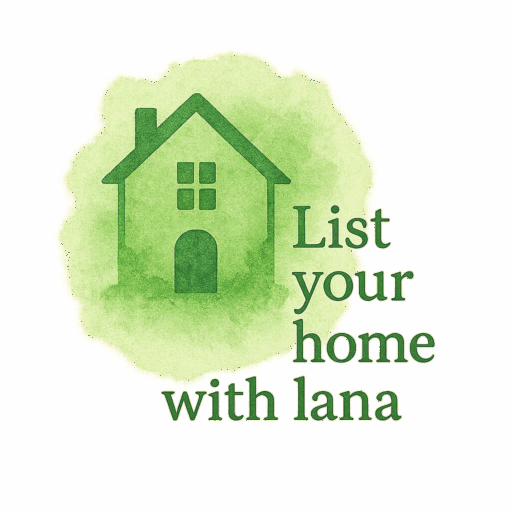Buying a home is exciting—but let’s be real, dealing with a mortgage? Not so much. There are dozens of questions swirling in your head, and you might feel overwhelmed by all the loan lingo. That’s why one of the smartest moves you can make is asking your mortgage broker the right questions from the get-go.
Whether you’re a first-time buyer or someone who’s been around the real estate block, these eight essential questions will help you understand your options, avoid costly mistakes, and confidently navigate the mortgage maze.
Understanding the Role of a Mortgage Broker
Before diving into the questions, let’s get one thing straight—what exactly does a mortgage broker do? In simple terms, they’re your middleman. They compare home loan products from different lenders to find the one that suits you best.
Working with a broker can save you time and money, especially if you’re not familiar with terms like home loans, interest rates, or closing costs.
Why Asking the Right Questions Matters
Would you buy a car without asking about its history, mileage, or condition? Of course not. The same logic applies to your mortgage. Asking questions ensures transparency and helps you understand exactly what you’re signing up for.
Let’s jump into those key questions that could save you thousands.
1. What Type of Home Loan Is Best for Me?
There’s no one-size-fits-all answer here.
Fixed-Rate vs Adjustable-Rate Mortgages
A fixed-rate mortgage keeps your interest rate the same throughout the life of the loan, which is great for stability. On the other hand, an adjustable-rate mortgage (ARM) starts lower but can fluctuate.
Customizing Your Loan to Fit Your Lifestyle
Do you plan to stay in your home for decades or just a few years? Are you expecting a change in income? Your lifestyle and goals will help determine the best loan type for you.
More help on selecting the right mortgage? Check out Home Financing Tips.
2. What Interest Rate Can I Qualify For?
Here’s where the rubber meets the road—your interest rate can make or break your budget.
Factors That Influence Your Rate
Lenders consider your credit score, income, loan term, and down payment. Even your choice of lender can affect the rate.
How Rates Affect Long-Term Costs
A difference of even 0.5% in interest could cost you tens of thousands over 30 years. So ask your broker to explain the numbers.
Use the tools at Home Market Trends to track rate changes.
3. What Fees Are Involved in the Loan Process?
You might be shocked by how many fees come with getting a mortgage.
Breaking Down Common Loan Costs
Think: application fees, origination fees, appraisal, title insurance, and closing costs. These can add up quickly.
Asking for a Loan Estimate Early
Request a Loan Estimate (LE) from your broker to see a breakdown of all costs involved. It’s your right.
Want more on budgeting for your loan? Read through our Finance Tips.

4. How Much Can I Borrow?
Just because a lender says you can borrow $500,000 doesn’t mean you should.
Determining Your Budget
Only borrow what fits comfortably within your monthly income. Consider things like property taxes, insurance, and maintenance.
Avoiding Over-Borrowing Pitfalls
Overextending yourself can lead to stress—or worse, default. Keep it realistic and grounded.
Visit our Home Ownership Tips for help budgeting smartly.
5. What’s the Down Payment Requirement?
This is one of the most common questions—and for good reason.
Low-Down-Payment Loan Options
While 20% is often ideal, you can still get approved with as little as 3% down, especially with FHA or VA loans.
Using Gift Funds or Grants
Some programs allow gift money from relatives or first-time buyer grants to cover part of your down payment.
See more on Home Buying Tips for alternative funding strategies.
6. Are There Any Prepayment Penalties?
This one often flies under the radar.
Why You Should Care About Early Payoffs
A prepayment penalty is a fee charged if you pay off your loan early. Sounds crazy, right?
Avoiding Loans with Hidden Traps
Not all loans have these penalties, but it’s worth asking up front. Don’t get penalized for being financially responsible!
7. How Long Will the Loan Process Take?
What Delays Could Occur?
Typically, mortgages take about 30–45 days to close. But credit issues, missing paperwork, or appraisal delays can stretch that timeline.
How to Speed Up the Process
Stay responsive, gather documents early, and keep in touch with your broker. You can also use this handy Checklist to stay organized.
8. What Documents Do I Need to Provide?
Brace yourself—the mortgage world loves paperwork.
Preparing for the Paperwork
Expect to hand over pay stubs, bank statements, W-2s, tax returns, and ID. If you’re self-employed, even more documentation may be needed.
Streamlining the Application Process
Organize everything in one folder. Your broker will love you for it, and the process will go way smoother.
Bonus Tip: Don’t Be Afraid to Shop Around
Your mortgage broker might have access to a variety of loans—but that doesn’t mean you shouldn’t compare elsewhere too. Use online tools, talk to your bank, and compare fees and rates.
Looking to sell your current home and upgrade? Swing by our Home Selling Tips before making a move.
Conclusion
When it comes to mortgages, knowledge is power. Asking these eight essential questions will help you make informed decisions, avoid surprises, and find the best loan for your needs. Remember, your mortgage broker is there to help—so take advantage of their expertise and ask away.
Don’t forget to explore more valuable resources at ListYourHomeWithLana.com to stay ahead in your real estate journey.
FAQs
1. Is it okay to talk to multiple mortgage brokers?
Absolutely! It’s wise to compare brokers just like you would lenders. You’re shopping for the best deal, after all.
2. How can I improve my chances of getting a better interest rate?
Boost your credit score, save for a larger down payment, and reduce debt. These moves show lenders you’re a low-risk borrower.
3. What’s the difference between a mortgage broker and a loan officer?
A mortgage broker shops multiple lenders for you. A loan officer typically works for just one.
4. Can I get a mortgage with bad credit?
Yes, though your options may be limited and your interest rate higher. Government-backed loans like FHA may be a good fit.
5. What happens if my mortgage application is denied?
Don’t panic—ask for the reason, improve your financials, and try again. You can also explore different loan types.
6. Are online mortgage brokers trustworthy?
Many are! Just check reviews, look for secure websites, and verify credentials before sharing personal info.
7. Should I choose a shorter or longer loan term?
It depends on your financial goals. A 15-year loan saves interest but has higher payments. A 30-year loan gives you flexibility but costs more over time.


